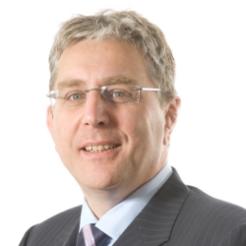Nuffield Health chief executive David Mobbs saw his salary rise to more than £780,000 in 2014, while his charity's income rose 9 per cent to £711m.
The charity's latest set of accounts, for the year to December 2014, also show that the number of people earning more than £60,000 rose by 40 per cent to 232.
David Mobbs earned between £780,000 and £790,000, the accounts show. In 2013 he earned between £640,000 and £650,000.
A spokesman for Nuffield Health said Mobbs's remuneration was linked to a "significantly improved year on year performance".
The charity "saw a revenue increase of 9 per cent to £711m and [income] from continuing activities reach £81m, a 13 per cent rise from 2013," the spokesman told Civil Society News.
"We believe in and practice transparency, and in line with NCVO guidance we are in the process of preparing to publish all our executive pay levels in our Annual Report and Accounts, and on our website," he said.
He said that executive remuneration at Nuffield is determined by an Executive Remuneration and Succession Committee, based on both performance and an annual independent review the salaries of similar roles in the commercial sector which are discounted to reflect the organisation's charitable status.
The charity's annual report also revealed that its expenditure rose by £16.3m in 2014 - from £692m in 2013 to £708.3 in 2104. Much of the additional spend went on charitable activities, including staff and supply costs.
In the report’s introduction, Mobbs said 26 per cent of the charity's income derived from products and services that cost less than £1 per day or were free at the point of delivery.
"We believe that by charging for our products and services we are best able to broaden and enhance our activities and provide a high quality offering," he said. "We also ensure that a substantial percentage of our services are available at a low fee or free at the point of access for those on low incomes."
Additional reporting by Kirsty Weakley.









